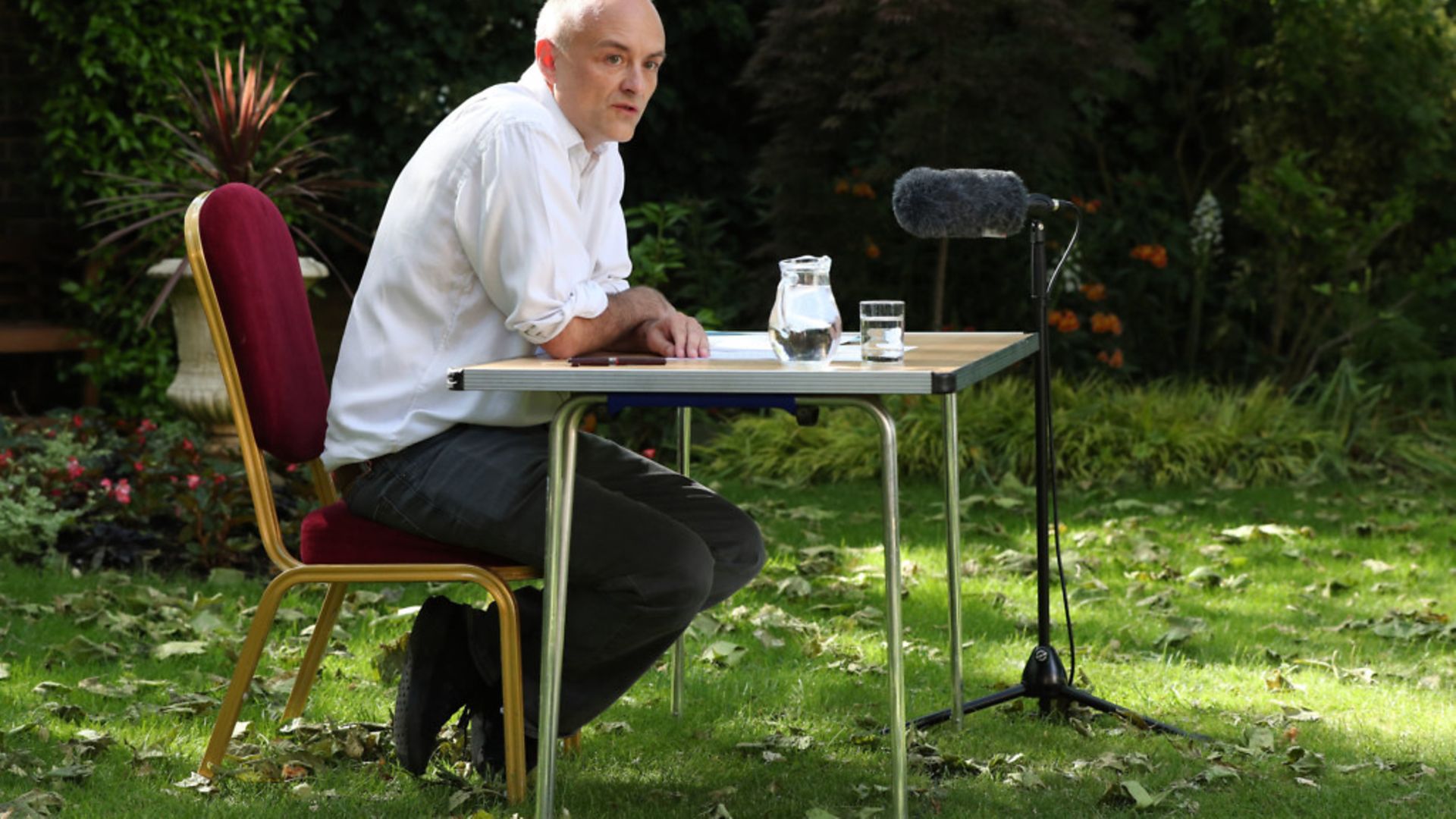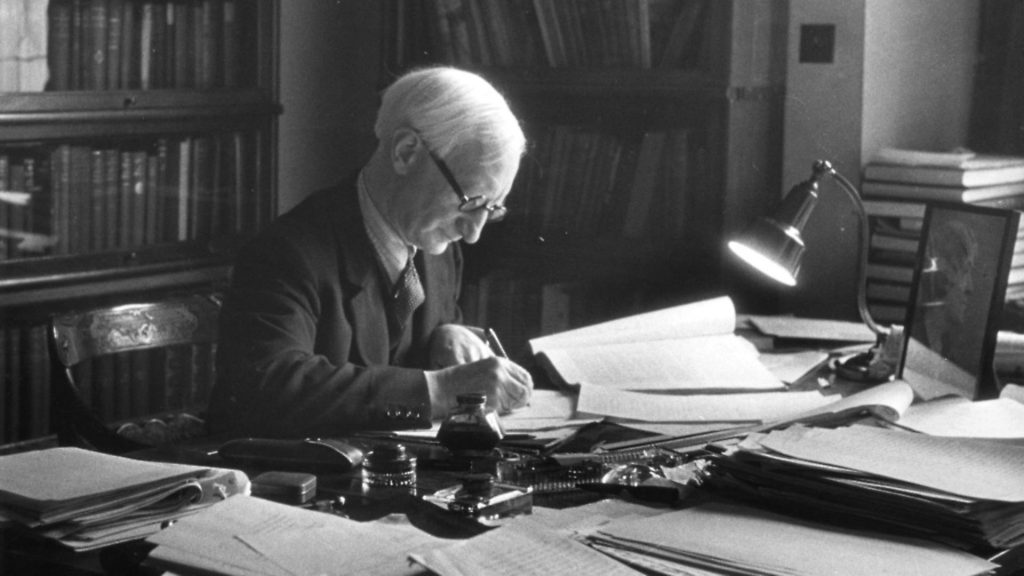
The challenges that lie ahead for Britain cannot be solved by one party or political ideology alone, says ALASTAIR CAMPBELL.

At the height of the Johnson/Cummings frenzy, as the entire government was convulsed by a prime minister’s passion to save his adviser, the Times ran an article co-authored by Jonathan Powell. It was a Cummings-free zone.
Many among The New European’s informed readership will know instantly who Jonathan is – he served as chief of staff to former prime minister Tony Blair for the entire period in office, and played a pivotal role in the Northern Ireland peace process – and many will not. He neither sought a profile, as Cummings does, nor had one given to him whether he liked it or not, as I did, the media’s obsession with me off the scale compared with the pre-Durham Cummings.
Jonathan was happy to stay in the background and, while always supportive of me, relieved to have someone else in the operation to take most of the lightning rod hits from the Tories and the media.
His article in the Times, written with Emily Benn, grand-daughter of Tony, who has politics in her veins and a good political brain in her head, was about the big challenges post-Covid.
It was classic Jonathan, in the style of hundreds of notes and emails I have read down the years – take a conventional wisdom, say why it is misplaced, suggest an alternative.
The conventional wisdom – that the pandemic will transform the world for the better.
Why it is misplaced – Spanish flu did not, and it wasn’t the Second World War itself that brought positive change to Britain, but a change of government and a change of approach to how government was done.
The solution now – a new Beveridge Commission, empowered to develop transformational policies with independent experts in the lead in a non-partisan way.
That Britain and the US are now riding high in the global death league tables is not merely down to the fact we both have awful and inadequate human beings as leaders, populists and liars more interested in their own lives than the lives of the people who, sadly, elected them.
It is also because coronavirus has exposed so much that is wrong with Britain after a decade and a half of austerity and Brexit mayhem. Inequalities of race, class and educational attainment; a threadbare and grossly neglected social care system; welfare systems divorced from the realities of the modern economy; millions without savings or security.
The point of the article is that these fundamental challenges cannot be solved by one party or political ideology alone; that it will take far more than one parliamentary term to implement the change required, which means there will have to be some form of lasting public and political consensus for them, to prevent short-termism and electoral cycles getting in the way.
I would put it less politely. This government has shown itself incapable of meeting any challenge, let alone such an enormous one. Indeed, the penny seems to be dropping with millions that, to put it mildly, Johnson is not very good at the job, and nor are most of his ministers. This is what happens when leaders are chosen on a misplaced sense of ‘personality’ and government is formed not on talent, but on ideology – the ‘Brexit right or wrong, whatever the consequences’ ideology.
The penny might be dropping too, when you see how much better the Germans and other EU nations are doing on Covid, compared with the UK, that perhaps the EU will also be better at Brexit negotiations, and better at adapting to post-Brexit life.
We have seen a really alarming dividing line between the four leaders of the infected world – Trump, Putin, Johnson, Bolsonaro – and those leaders who think fact, reason and expertise have a role to play in political leadership, like Merkel, Macron, Trudeau and Ardern. The coronavirus has exposed the populist virus for what it is – a sickness in our politics that its creators can not and will not cure.
The Powell-Benn proposal is the formation of a group of independent experts made up of social and business leaders, academics, and political figures from across all parties and none. This is very much how Clement Attlee’s post-war government rebuilt Britain.
William Beveridge, the father of the welfare state, was a Liberal. His report was commissioned by a Labour minister, Arthur Greenwood. The National Health Service was first proposed by a Tory minister, Henry Willink, but implemented by Labour, with Nye Bevan in charge as minister.
The whole construct of the welfare state was kept in place for the next 20 years by a cross party consensus, and the near universal support for the principles of the NHS exists to this day, strengthened by their ‘lions led by donkeys’ heroics in the current crisis.
Of course back then, political and media systems meant the ideas were formed from the top. Today, it is possible to involve the public far more in identifying priorities and formulating ideas and policies to meet them.
Beveridge identified five giants standing in the way of progress: want, disease, ignorance, squalor and idleness. What are the five today, in a world so different, and continually being transformed by technological change? That question in itself could spark an important public and political debate.
It is hard to imagine that a prime minister who was prepared to lose the few genuinely talented Tories because they didn’t ‘believe hard enough in Brexit’ will reach out beyond the narrow Vote Leave tribe for this or anything else. But Labour can, and perhaps Keir Starmer could take a look at the Social Justice Commission set up by former Labour leader John Smith in 1992, whose ideas played an important role in shaping the debate and the policies that led five years later to our first landslide.
It is very easy, in the modern world of 24/7 news and endless blah on social media, to forget that politics is about the big things not the little things.
It is also wise to remember that out of every crisis comes either progress or decline. Right now, with this lot in charge, it is hard to feel confident that it will be progress, especially not with the Brexit catastrophe still to come.
Reading the Powell-Benn article, I was struck not merely by what an obvious and excellent idea it is; but also by the difference in quality between prime ministerial chief advisers then and now. What came through were qualities I saw closely during a decade working with Jonathan – clever, serious, analytical on major policy challenges facing the country, driven by national interest rather than narrow party, political or personal gain.
These are all qualities sadly lacking not just in Cummings, but, more importantly, in Johnson too. It is truly tragic that we have elected as prime minister someone so ill-suited to it, and that he has as his chief adviser someone, as was clear from his ludicrous press conference in the Downing Street garden, so devoid of the qualities needed, or indeed the basic humanity required, for true public service.
It has been somewhat tiresome, when doing interviews in recent days, to be asked: ‘Would Tony Blair have sacked you if you had done what Cummings did?’ One, I would never have done it. Two, Tony Blair would never have hired at public expense the sort of person who might, and three, he certainly would not have sought to defend such a person in the way Johnson has defended the indefensible in recent days, before going back underground again.
My final observation is prompted by a message from a mid-ranking civil servant who worked with me and Jonathan, and who now works for one of the major departments of state. ‘The thing about you and Jonathan is that we never saw you talk down to, let alone lose your temper with, someone below your own rank. If you were calling people out, it tended to be cabinet ministers and people at the top of the machine. The reason Cummings and Johnson have so few friends and admirers in here, is that they shout at the little people, and make sure the ‘big people’ are just yes-men. Keep going,’ he said. ‘I know you think they are bad, but believe me, they are worse.’ We are seeing the consequence of such an ill-advised approach and its consequences for the three essential pillars of any major organisation – leadership, teamship, strategy. Johnson and Cummings have failed on all three in this crisis. This does not fill me with confidence that the current government has the capacity or intellect to address the problems outlined by Jonathan and Emily in their article.
As it required thinking that went beyond a three word slogan, a few words of Latin or an after-dinner speech, we can be sure that Johnson, who at the Liaison Committee was shown as not understanding basic welfare concepts such as ‘no recourse to public funds’, will not have read.
The very last point comes courtesy of a friend who serves in the Special Forces. You may have seen last week that, a bit manic, I posted online an ill-advised video impersonating Boris Johnson singing a new national anthem, God Save My Darling Dom, to the Queen.
I wore my brother Donald’s Guards tie and his military medals, which unsurprisingly offended some, while amusing others. I later deleted it and apologised, but not before getting into a very ugly Twitter spat with defence minister Johnny Mercer.
‘Keep going with that plonker,’ my SAS friend, who has fought in Iraq, Afghanistan and plenty more places besides, urged me. ‘They have absolutely no idea what it feels like to be sent to risk your life, when your country has chosen to make itself so irrelevant and derided in the world.’
All over the world, many employed by the government, not least diplomats, are feeling that. I suspect we are going to have to be rid of them before the Powell-Benn proposal has any chance of flying. Meanwhile, the damage mounts, and the country suffers.









